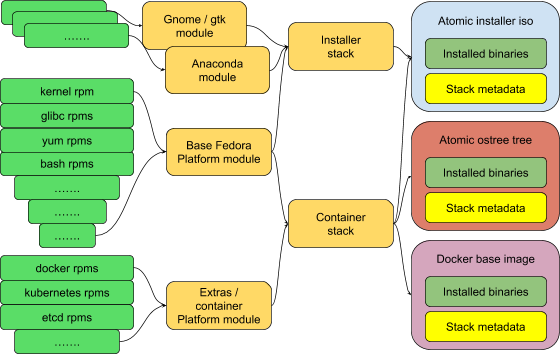Let’s look at a couple of examples to make it (hopefully!) clear what we’re talking about.
Example 1: Our Atomic Host stack
We already release content that is organised in much this way, just not with any formal definition of modules or stacks.
Atomic, for example, is composed from multiple sources. Some content comes from traditional Fedora with its usual 6-month lifecycle; and some comes from -Extras with its much shorter lifecycle and rapid rebasing to pick up new features.
And even within Fedora we have different levels of lifecycle. An obvious example is Gnome; the Anaconda installer stack that we use for Atomic installer ISO images depends on this faster-moving content, even when the installed atomic host does not include it.
But even though these distinct sets of components all have differing lifecycles, they still belong within Fedora and we still produce coherent output images or artifacts from them today, with planned releases that require alignment between all the relevant parts. In the language of this document, it might look like this:

